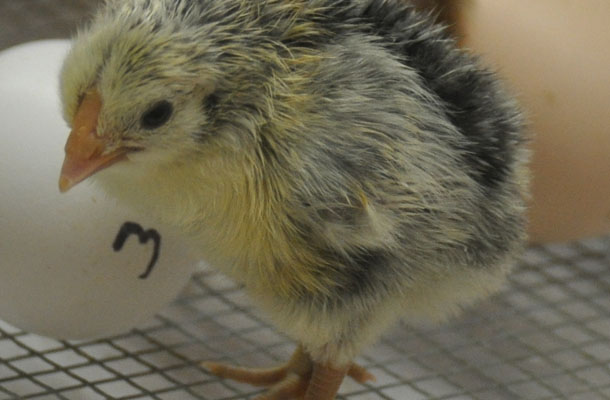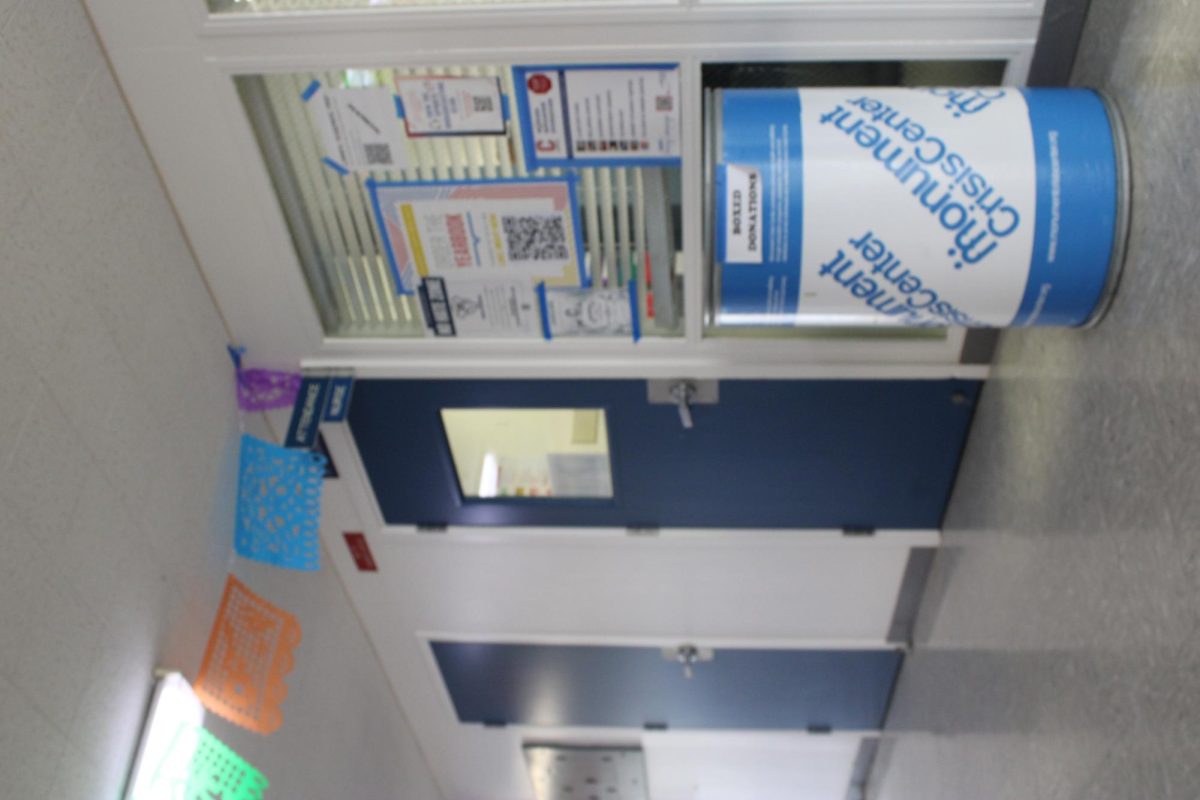Science teachers Rene Gillibert and Cheryl Rego are bringing back a project that requires hatching baby chicks in their biology classes.
According to Gillibert, his 30 eggs were scheduled to hatch on October 10, and Rego’s 35 eggs were scheduled to hatch on October 17. So far, 3 chicks in Gillibert’s class have hatched, and 6 in Rego’s class have hatched.
Gillibert created this project in 1999, when he first started teaching. “I brought chicks in an incubator and students liked it, and I kept it going. I do it on and off every year,” Gillibert said.
According to Gillibert, the eggs must stay in an incubator for 21 days, at 99.75 degrees Fahrenheit, until they hatch. “We crack the eggs open in different stages because the embryos are homologous to human embryos, so we get to look at the different traits of embryos,” he said.
“I’ve learned about how the chicks hatch and how to be a mommy chicken,” Sophomore Emily Lyall said.
“It’s going to be interesting when they actually hatch,” freshman Hannah Rosen said.
According to Rosen, students have been weighing the eggs every 4 days, and had to create a hypothesis before they made their observations. “When eggs develop, they lose weight, instead of gain weight, which was my hypothesis,” she said.
The hatched chicks will be kept in a brooder, and will be put in the coop in the garden when they have their feathers. According to Rego, it will take a couple months before the chicks are ready to be put in the coop.
“Mr. Gillibert has been doing this project for quite some time and I believe that’ll continue,” Rego said.












